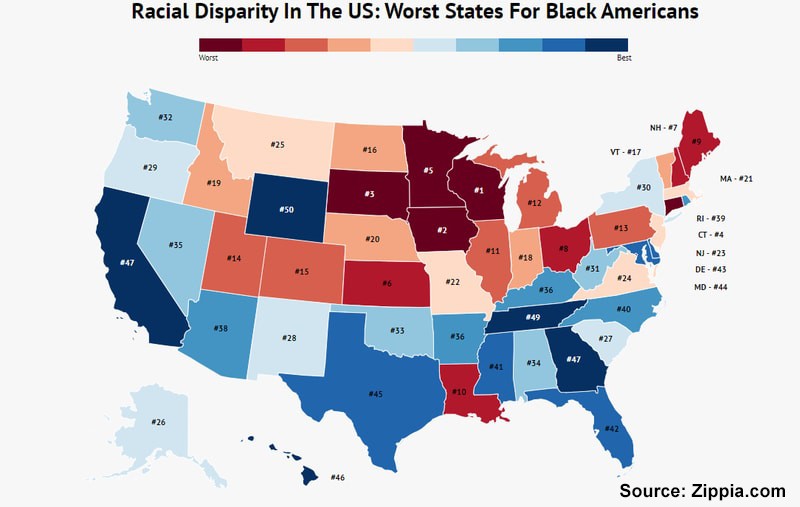
Last fall, there were several pieces published in the Hartford Courant and CTMirror related to the many strengths and challenges Connecticut has faced over time and what is driving our population to stay here or leave. Regardless of side of the debate, each author also recognized the potential of our state despite the challenges in our way. After every piece, I found myself having the same debate with myself that I’ve been having for the last five years: whether I should leave Connecticut for good.
However, absent from these fight-or-flight debates was a critical race lens at the center of the debate. One of the reasons that I find myself wanting to leave Connecticut is because of the drastic racial inequalities our state faces and our state’s consistent inability to confront this challenge.
I witnessed and experienced these inequalities firsthand growing up in Connecticut. As a native of New Britain and a product of the city’s public education system, I noticed early how I was sometimes treated differently than my peers of color and simultaneously, how different New Britain public schools were compared to more affluent adjacent towns.
For example, in middle school, I was hand-selected to participate in a Gifted and Talented program (despite average grades and test scores) that was comprised of a majority of white, middle-class students, who were then funneled into AP classes and higher education. In 12th grade, I attended a basketball game where the almost-all white students from the competing team chanted “SAT scores” from the stands.
While the segregation across the state, along with these examples, are not new information to nearly anyone, my frustration with state leaders is the inability to give up power to transform our communities. Every legislative session, forward-thinking ideas emerge that would position Connecticut as a leader of progressive change across the nation. But, one way or another, these ideas never make it to the governor’s desk, and even when they do, they are not strongly implemented with a critical race lens at the center. As a result, this watered-down approach not only perpetuates the status quo, but increases the growing dissatisfaction with the quality of life among many of Connecticut’s residents, despite one’s race or Zip code.
A recent analysis of publicly available data shows that Connecticut must give up this approach in order to do better. The results are appalling, and the end results impact everybody in Connecticut. When examining education, income, incarceration, and home ownership together, Connecticut comes in 4th as one of the most unequal places for Black Americans to live. The data confirms much of what we already know to be true, but when examined and ranked collectively, shows us how much work we have to do. Moreover, when considering the inextricable links between education, income, and home ownership, we must prioritize systemic changes and reparations to help close these extreme gaps in our state.
As a state that tends to tout itself as a progressive, we have a long way to go to ensuring that Connecticut can be a place where every resident can thrive. When we can become a state that creates more access to opportunities such as high-quality education, meaningful wages, and home ownership for everyone rather than relying on race and Zip code to determine the access to these opportunities, we will be a state that is inclusive, equitable, and prosperous. That is the state that I want to live in, and that’s the potential that I know Connecticut has.
Stephanie Luczak LMSW lives in Meriden.